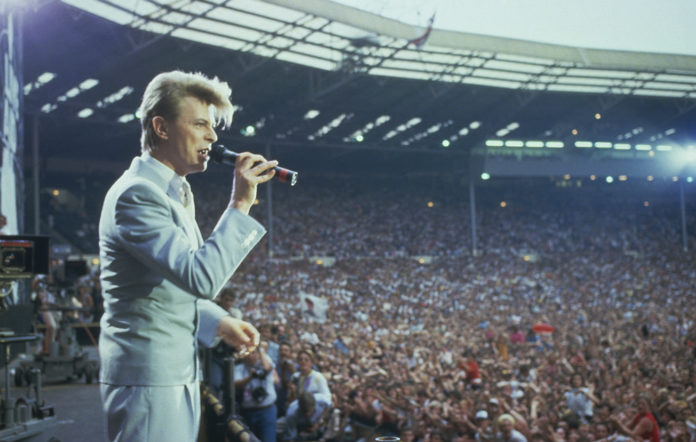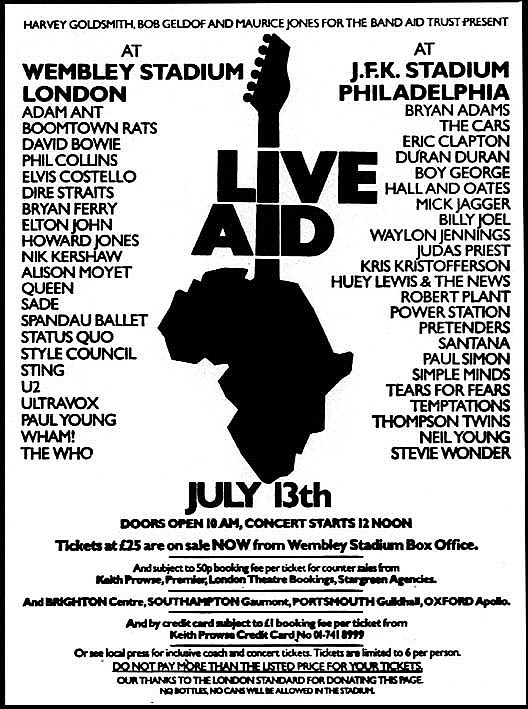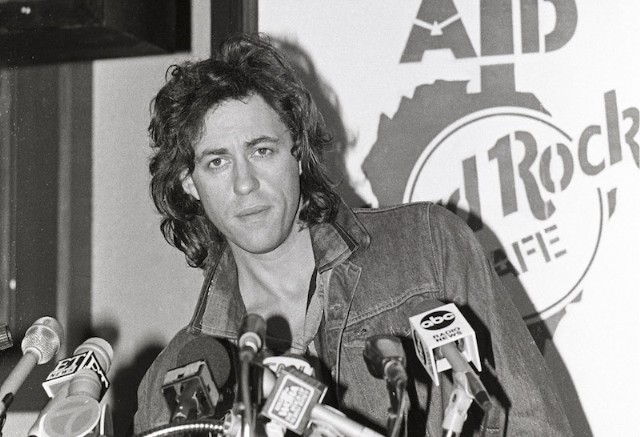One of the reasons Live Aid was so revolutionary was because of who it involved-- rock musicians. After years of being seen as rebels "fighting the system," the same artists were on stage performing in the name of activism, uniting countries to fight famine.

David Bowie performs at Live Aid, NME, 2018

